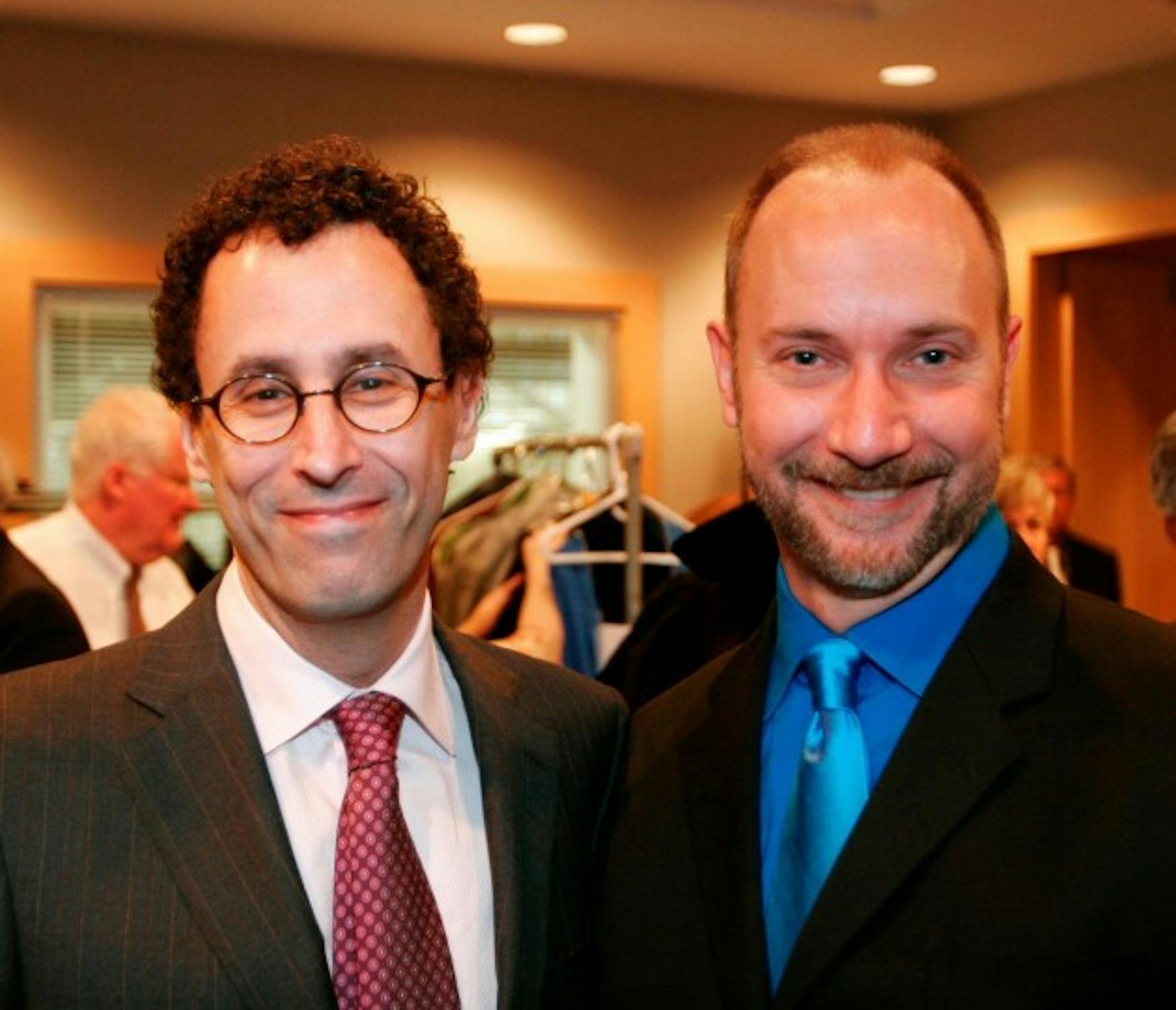Edmiston directs 'Brundibar & But the Giraffe'
This week, JustArts spoke with Scott Edmiston, the director of the Office of the Arts. Edmiston is directing Brundibar & But the Giraffe, a production which combines Brundibar, an opera performed in the concentration camp Terezin during World War II, with a short play by Tony Kushner that aims to give historical context to the opera. The play is showing at the Central Square Theater in Cambridge from March 6th to April 6th.
JustArts: How did you get involved in directing Brundibar?
Scott Edmiston: I usually direct two to four professional productions a year in Greater Boston. The Central Square Theater has approached me a few times before and, this time, the timing worked out.
JA: What attracted you to the production?
SE: I spent a day with playwright Tony Kushner when he received an honorary degree from Brandeis in 2006. He was the commencement speaker for the arts, and I introduced him. I mentioned his new translation of Brundibar and remembered it. He is so brilliant and funny and a deeply moral artist- I think he is our greatest living playwright. So I would eagerly direct anything associated with him.
The story of Brundibar is really just a simple fairy tale, but the story surrounding the opera being performed at Terezin was compelling and very moving to me. I was intrigued by the challenge of finding a way to dramatically capture what it meant to the children in the camp. The idea that a work of art-music, theater-can sustain our humanity even in the most dehumanizing situation deeply resonates with me.
JA: What do you think Tony Kushner's But the Giraffe adds to the opera?
SE: Kushner wrote this short play to help provide the historical context of the opera. In the play, which he calls "a curtain warmer," he imagines how the score for Brundibar was smuggled into the camp. It's inspired by real people and situations. A conductor named Rudolph Freudenfeld took the score to Terezin and the character of Rudy is based on him. I think But the Giraffe is extraordinary-it's a simple story for children but can be simultaneously experienced by adults as "Theatre of the Absurd." I visited Prof. Gannit Ankori's (FA) "Art and Trauma" class and discussed it with Brandeis students. They had many wonderful insights that helped me shape our interpretation.
JA: In terms of integrating But the Giraffe, can you tell us how it fits into the opera? Is it presented separately or integrated into the performance?
SE: Unique to our production, I was interested in connecting the two pieces. As a director, part of my role is to give unity to the production. So I've included the characters from Giraffe (act one) in Brundibar (act two). After intermission, Rudy conducts the performance as he actually did in Terezin. I hope the audience experiences the evening as one continuous story in a way that deepens their emotional journey.
JA: What message do you imagine Brudibar sent to the people in Terezon and what purpose do you think it could have served?
SE: Ela Weissberger, a survivor of Terezin who performed Brundibar 55 times in the camp, came to our production. It was a great honor. She spoke to us about how the opera helped the children forget where they were for a while. When they were onstage, it was the only time they were allowed to take off their gold stars. And the symbolism of the piece resonated with them. Brundibar is the tale of a cruel organ-grinder, a bully, who oppresses the children. She said that, to them, he clearly represented Hitler. In the end, the children in the opera unite to defeat the bully. I believe its depiction of the triumph of good over evil helped give the prisoners courage and hope.
JA: What are some of the creative licenses you took with directing Brundibar?
SE: I gave our production what I call a frame. It begins in Terezin as if you were actually there and watching the children perform. Then, moment by moment, the fairy tale becomes more vivid and the audience is transported away from reality into the children's imagination. The final moments return us to Terezin. Another thing that's unique to our production is that there are three animal characters-a dog, cat and a bird-and I chose to have them performed as puppets rather than people in animal costumes. I think it adds to the sense of magic.
JA: What can we learn from this performance today?
SE: I hesitate to try to sum up all the possible meanings of the work-I hope each audience member will have a unique personal response. But there is something timeless and essential that Brundibar has to say about being diligent, about fighting cruelty, about the importance of standing up to injustice. Because in real life, bullies are not as easily defeated as they are in fairy tales.
JA: Do you have any future plans to direct shows?
SE: I have two projects lined up for next season-a new musical and an American classic. But of 60 or so plays and operas I've directed in Boston, Brundibar will always have a special place in my heart. I loved working with the 32 children in the cast and the opportunity to honor the musicians, artists and children whose lives and deaths are part of its legacy. It's been a privilege.
-Emily Wishingrad



Please note All comments are eligible for publication in The Justice.